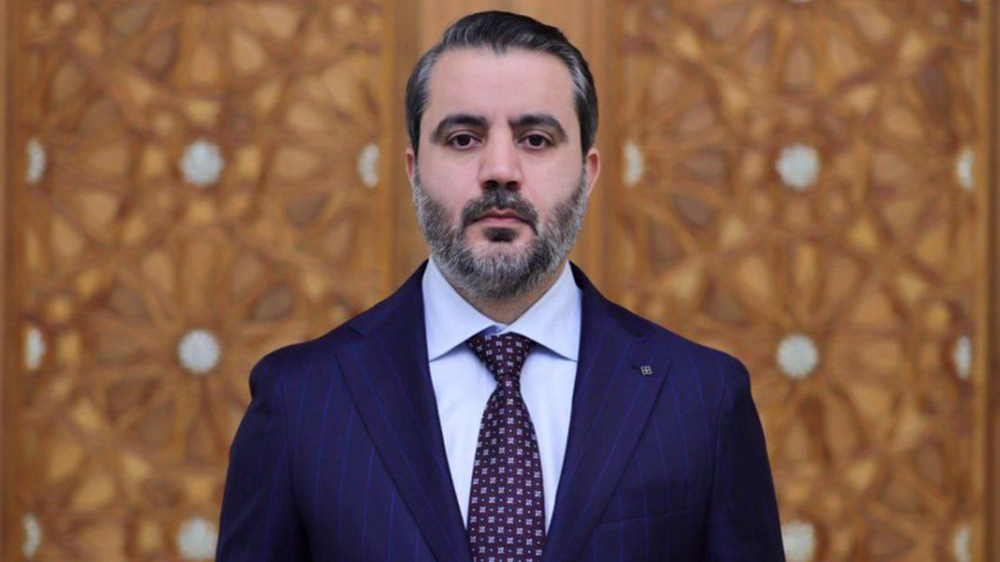Russia says to give Syria S-300; plane incident to harm Israel ties
Defense Minister Sergei Shoigu says Russia will supply Syria with a modern S-300 system within two weeks and block the communication of planes bombing the country from the Mediterranean.
The announcement on Monday came a week after Russia blamed Israel for the downing of a Russian military plane in Syria, which killed 15 service members.
The downing has forced Moscow to take "adequate retaliatory measures to increase the safety of Russian military fighting international terrorism in Syria," Shoigu said in a televised address.
"A modern S-300 air defense missile system will be transferred to the Syrian armed forces within two weeks," he said, adding the system will significantly increase the Syrian army's combat capabilities.
Meanwhile, the Kremlin said the downing of the Russian plane in Syria will harm relations with Israel, reiterating that Israeli pilots had acted deliberately.
"According to information of our military experts, the reason (behind the downing) were premeditated actions by Israeli pilots which certainly cannot but harm our relations," Kremlin spokesman Dmitry Peskov told journalists.
The Russian Il-20 reconnaissance aircraft disappeared from radars on September 17 as four Israeli F-16 warplanes were attacking state institutions in Syria’s Latakia Province, which is home to the Russia-run Hmeimim airbase.
Moscow says Israeli F-16 jets used the landing Russian plane as a "cover" which resulted in the Il-20 being struck by a Syrian air defense missile.
Shoigu said Russia will equip Syrian anti-aircraft units with Russian tracking and guidance systems in order to identify Russian aircraft.
"In regions near Syria over the Mediterranean Sea, there will be radio-electronic suppression of satellite navigation, on-board radar systems and communication systems of military aviation attacking objects on Syrian territory," he said.
"We are certain that the realization of these measures will cool the 'hot heads' and will keep them from poorly thought-out actions which threaten our servicemen," Shoigu added.
Russia first indicated supplying Syria with the S-300 in April but abandoned the plan apparently under lobbying by Israel. The missile system fires missiles from trucks and is designed to shoot down military aircraft and short- and medium-range ballistic missiles.
Russia warned Israel before downing
Russia had warned senior Israeli officials that attacking targets in Syria would harm Moscow's interests ahead of last week’s incident during which a Russian military plane was downed in Syria, the Haaretz daily revealed Monday.
The paper quoted security officials as saying that Moscow had recently conveyed a message to Tel Aviv that attacking Syrian targets was against its goal to strengthen Syrian President Bashar Assad’s legitimate government and end the fighting in the country.
According to the report, Israel has refused to change its policy in Syria despite the Russian message.
The Russian Defense Ministry presented its latest findings on the Il-20’s downing on Sunday, blaming “misleading” information from the Israeli air force command for the downing of the Russian plane by Syria’s S-200 missile defense system and holding the Israeli regime fully responsible for the tragic event.
“We believe that the Israeli air force and those who were making decisions about these actions are fully to blame for the tragedy that happened to the Russian Il-20 plane,” Major General Igor Konashenkov said.
Russia also accused Israel of using a hotline, set up between the two sides to avoid airborne collisions, to mislead Russia about its plans.
Konashenkov said an Israeli officer had told them about an operation in northern Syria while the jets were actually in Latakia, in the country’s west.
“The misleading (information) by the Israeli officer regarding the location of the strikes made it impossible to guide the Il-20 to a safe location,” he said.
Konashenkov also said the Israeli fighter jets deliberately used the Russian plane to shield them from Syrian air defense missiles after Israel hit targets near the coastal city of Latakia.

He also complained that Israel has, over the years, waited until the last minute to notify Russia of its operations, putting Russian aircraft at risk.
According to Haaretz, Israel fears that Russia can influence its military activity through demanding greater warning time, deciding to close the airspace or requiring that more advanced air defense systems be put in place as a signal to Israel, among other things.
The Israeli military on Sunday rejected Konashenkov’s remarks, claiming that mechanisms to coordinate with Russia had been used properly ahead of the Il-20’s downing.
"The Israel air force did not hide behind any aircraft and the Israeli planes were in Israeli airspace when the Syrian [missiles] hit the Russian plane,” read the military statement.
Russian jets have been conducting air raids against Daesh and other terror outfits inside Syria at the Damascus government’s request since September 2015.
On the contrary, Israel frequently attacks military targets in Syria in what is considered as an attempt to prop up militant groups that have been suffering heavy defeats against government forces.
VIDEO | Yemenis praise the military for its successful operations against Israel
VIDEO | Israel continues to bomb Gaza homes
VIDEO | An insider's view of the country: Meybod City in Yazd
‘All wars have rules. All of those rules have been broken’ by Israel
VIDEO | Report flags India’s violation of rights of Rohingya detainees
Turkey's foreign minister meets Syria's de facto leader in Damascus
VIDEO | US Syria plots
'Next to impossible' to rescue patients from Gaza's Kamal Adwan Hospital: Director













 This makes it easy to access the Press TV website
This makes it easy to access the Press TV website